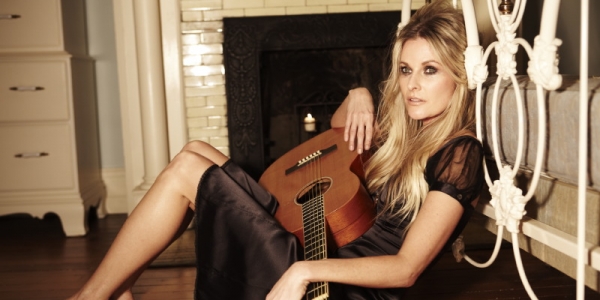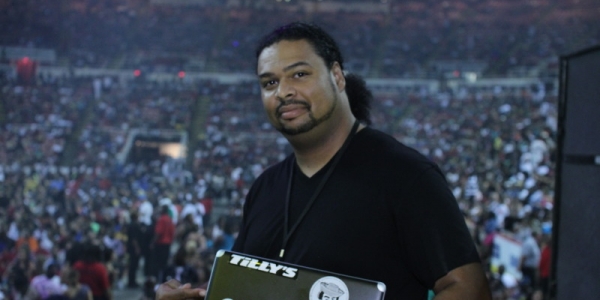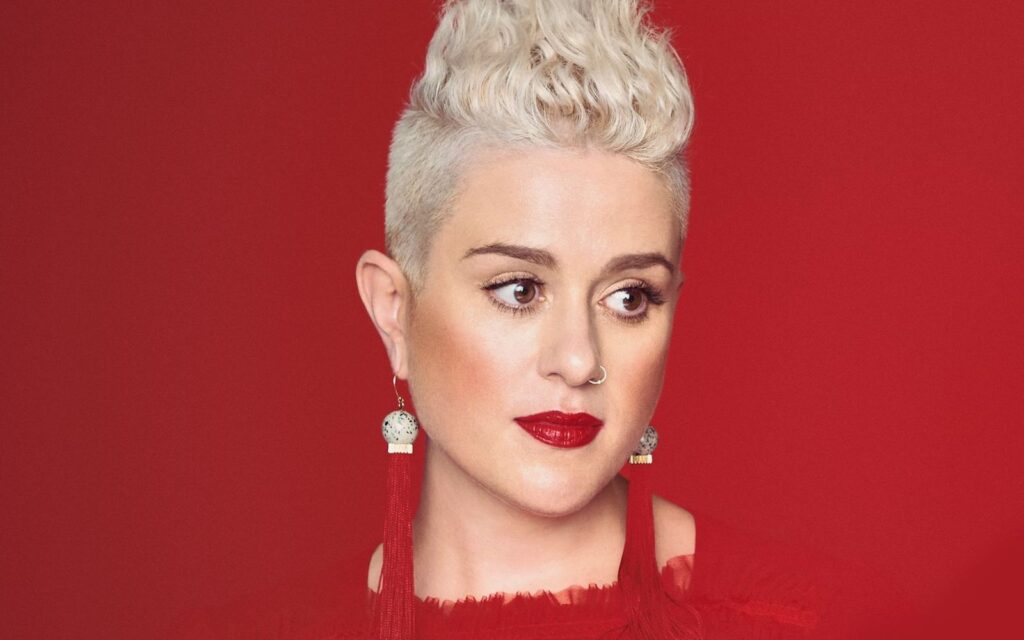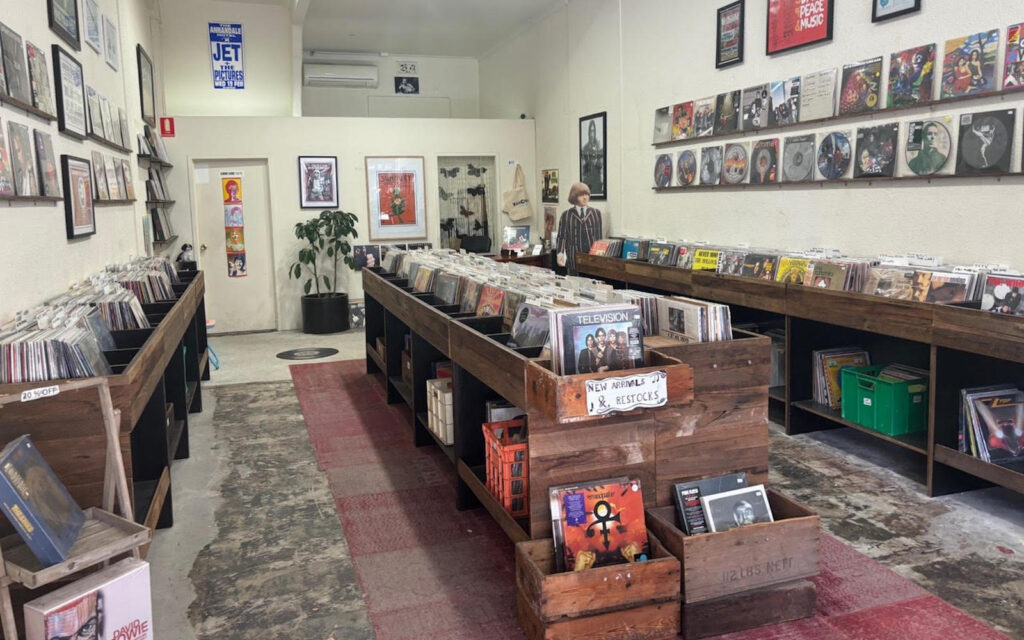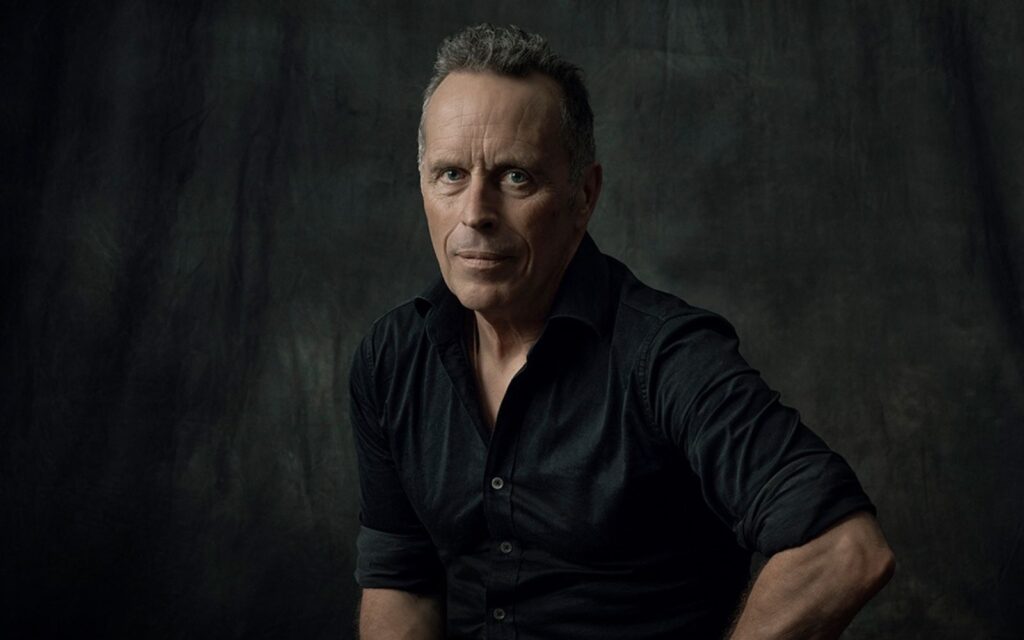Cook was born in Florida to parents who had been musicians for much of their lives. Prior to Cook’s birth, her father had also spent time in prison for his part in an illicit and lucrative moonshine operation on the America’s East Coast; while in jail, he decided to trade his criminal activities for a life on the straight and narrow. “He was out of jail by the time I came along,” Cook says. “When I was growing up, he was very honest about what he’d done – that was part of his healing and recovery.” While serving time, Cook’s father obtained a welding certificate – hence the title of Cook’s latest album, Welder. “One of my first bands was called The Model Prisoners,” Cook says. “My daddy learnt to weld, he was in a band while he was in jail, and he had a radio show. He was a really popular member of the prison population, and they even had a party for him when he left,” she enthuses.
Cook had started singing occasionally in her parents’ band at a young age, performing in a variety of venues, including the odd licensed establishment “that wasn’t really appropriate for children”. When Cook was nine, her father quit drinking, and playing at bars was no longer on the agenda. At high school, Cook received good grades, and was encouraged by her teachers to go to college – much to the bemusement, and incredulity of her parents. “I graduated with a grade point average of 3.5, so I got a lot of job offers after I finished college,” Cook says. Eventually Cook settled on a position at accounting firm Price Waterhouse Coopers in Nashville, Tennessee. “That was our dream destination because of the country music scene,” Cook says. “Even though I was working as an accountant, there was a bit of romance involved in moving there.”
Once ensconced in the corporate world, Cook was profoundly disappointed. “The accounting job really sucked,” she recalls. “It was oppressive, and there was no room for my quirky self. I would get in trouble for the clothes I was wearing – there was no freedom to express yourself.” Serendipitously, Cook was offered a job writing songs as a staff songwriting for a local firm, proving the perfect catalyst to leave her job at the accounting behemoth.
Cook has been quoted in previous media interviews that she doesn’t enjoy drawing attention to herself. As a singer-songwriter, with a catalogue of songs that – perhaps unintentionally – suggests a window into her social and personal world, it’s a surprising protestation. “I’m not nervous when I go on stage, but I can be uncomfortable with the situation,” Cook says. “But once I’m in the music, it’s OK.”
In 2000, Cook made the first of many appearances at the legendary Grand Ole Opry theatre in Nashville. “Playing the Grand Ole Opry was a big thing for me and my family,” she says. “And getting to do it again was an absolute dream. I’m still giddy that I get to go back and play there pretty well whenever I want.”
Since trading her dud accounting job for a career in music, Cook has released five albums, including 2010’s Welder, which featured Don Was in the producer’s chair. While Cook’s songs reflect the mix of pathos, tragedy and humour common to country music, Cook doesn’t necessarily use her music to expose her psychological machinations. “I think all of my music is personal, because if you’re writing from a pure place, that it has to be personal,” she says. “I don’t deliberately sit down to write, I just do it. I tend to have inspirations. I write a ton of lyrics in a journal or prose style, and then it’s a separate process to put that into a song.”
Having released her second album, Hey Y’all’, on Warner Brothers in 2002, Cook chose to turn her back on the major label world. “It was my decision to leave, but it may have been just around the corner that they were going to drop me,” Cook says. “I saw where mainstream country music was, and where the label was going, and that wasn’t gratifying to me. Basically, they need people to come and sing dumb songs on the radio. There’s a lot of dollars to be made, but I didn’t want that for my music. I’d just as soon be an accountant inappropriate clothes!” she laughs.
BY PATRICK EMERY
